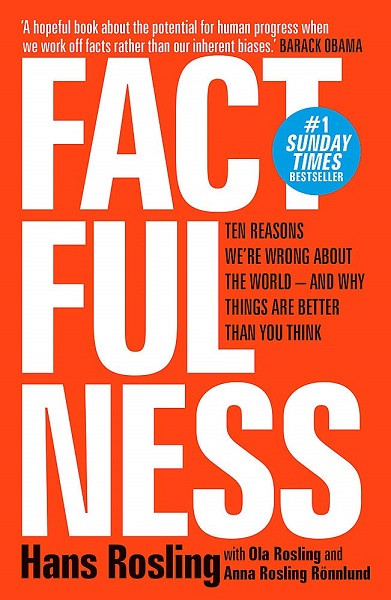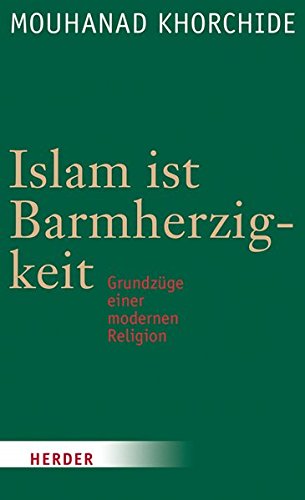
Justified 3rd-world optimism, guide to skeptical thinking, although somewhat biased itself
This is an amazing book, amazing under several aspects:
First, it is amazing, because you think that most human beings live in poverty, that the increase of population is eating up all successes in development, and that there is no improvement at the horizon – and then you see: By silent development, by small steps over long times, and without media attention, this world has become a better place, and many problems are already solved, or will soon be solved. Change is possible, is already on its way, or is even already reality. Some major examples:
- World’s population is no longer living in great poverty. Most countries managed to reach a medium level of development.
- World’s population is not just increasing without limits. Instead, „peak child“ is already reached!
- The number of children has almost nothing to do with religion, but is clearly related to the level of development.
- The visualisation of life circumstances on the author’s „Dollarstreet“ Web site is very valuable.
This book is also amazing in giving its readers a lecture in skeptical thinking. There are so many mistakes you can make when following mainstream thoughts. Here, you learn to develop a sense of skepticism, and to ask the right questions to debunk easy and popular answers. The book is a plea for rationality, against emotional judgements. It also teaches skepticism towards a belief in experts. Experts e.g. are only experts for their field, not for other fields. And it teaches how to interpret statistics correctly: You shall not interpret data out of context, expect linear increase instead of curves, ignore the possibilty of change, e.g. by still working with statistics from the 1960s – which are simply wrong because unexpected change has arrived!
Amazing is also, that the author can provide first-hand experience from poor countries about the mindset of poor people, and about their real needs, since he worked there as a doctor. Many valuable experiences from his eventful life are openly presented, including fatal mistakes he made. Priorities are different, if living in poor circumstances. And development depends on things you would not imagine. E.g. saving the children of the poor by modern medicine does not mean to increase world’s population without limits. Because the children’s health security is an important step towards parents having fewer children. If you want to put a limit on the world’s population, save the children! Human life in past centuries had a balance in population numbers only because so many children were dying. It was not paradise, as some imagine.
Not everything in this book is convincing:
- The problems of immigration from underdeveloped countries into developed countries are very generally downplayed.
- The book concentrates on the decrease of the number of children, yet it completely ignores that in the meantime, childlessness in developed countries has become a new problem on its own. Closing the gap of births by immigrants from poorer countries is highly problematic, since so many immigrants are needed to fill the gap that they cannot integrate into the developed culture any more. Furthermore, there is the problem that emigration of educated citizens from poorer countries into developed countries deprives the poorer countries from the fruits of their development.
- „Peak child“ is reached also because of the childlessness of developed countries. This means that still too many children are born on a lower level of development. Especially in Africa, „peak child“ is by far not reached, yet, and as the book itself says, Africa’s population will increase from one billion to three billion, if slow but steady development in Africa will do its work as expected.
- More developed countries means more need for natural resources, and indeed the rivalry over the natural resources of the planet is increasing. China e.g. is on a big „shopping tour“ in Africa, while at the same time building a fleet of aircraft carriers to fight for its interests in the world. Wars could be the consequence, and are likely. Especially the development of middle-developed countries can quickly be destroyed by war. The author ignores the not-at-all linear but disruptive quality of the statistics of war casualties which he himself presents.
- The author suggests that companies should strip off their national roots and pretend to be „global“, although this deprives them of their identity, their traditions, and creates anonymity and informal cultural power structures.
- Concerning the media (and schools!), the author sees no politically intended bias as driver of wrong information, but only a bias because of ignorance and dramatization.
- The author is a strong advocate for the idea that climate change is man-made, that it will have catastrophic effects, and that quick and strong measures are needed to tackle the problem.
All in all, the author favours sometimes a naive optimism, and has a clear political left-wing bias. Indeed, the author has a left-wing background. He is e.g. member of IPPNW (International Physicians for the Prevention of Nuclear War). This organization helped Soviet Union during Cold War to spread FAKE NEWS creating irrational fears of nuclear war in Western countries, in order to „democratically“ dismantle the West from its nuclear defence, and thus to ensure the victory of communism over the West. Hans Rosling himself tells in this book how his fears of nuclear war are irrational and deeply rooted in his family. IPPNW got the Noble Peace Prize in 1985. Former US president Obama, Noble Peace Prize in 2009 and himself known to be a left-wing politician, is advocating Rosling’s book.
Yet amazing again, the author is excused:
Reading this book it becomes clear that the author got over the usual politically biased propaganda. This becomes especially clear when he advocates against typical left-wing notions: For example, he explicitly rejects emotionalized „thinking“ about immigration as created by pictures of drowned children. Or he explicitly says that in Fukushima nobody was killed by radioactivity, but by senseless evacuations driven by irrational fear of radioactivity. Or he explicitly advocates against „thinking“ under the pressure of alleged urgency when it comes to climate change. And he strongly rejects the idea that overdramatization is justified to make politicians act on climate change! This is great.
And last but not least: Yes, the author is basically right to have a certain optimism, and he is right in his basic idea, that only development is the solution, and nothing else, and that development is indeed possible, despite all pessimists.
Summary
This is an amazing book. Not only that it gives you a much more optimistic view of the world. It teaches you also to think on your own. And while you cannot agree with the author in all questions, his way of thinking is still convincing. This is really amazing.
Bewertung: 4 von 5 Sternen.
(Erstveröffentlichung auf Amazon am 18. Mai 2019)

